Can a German Shepherd Eat Strawberries?
Date Published: February 12, 2024 | Last Modified: February 16, 2024
German shepherds and strawberries might not seem like a natural pair, but rest assured - these two can actually go together quite well. In this article, we'll be delving into the world of feeding strawberries to our beloved German shepherds. We'll explore the health benefits that these juicy fruits offer to our furry friends, as well as the potential downsides. Safety is always a priority, so we'll also address any concerns regarding the consumption of strawberries by German shepherds and determine if there are any toxic risks involved. So, can your German shepherd munch on strawberries? Let's find out!
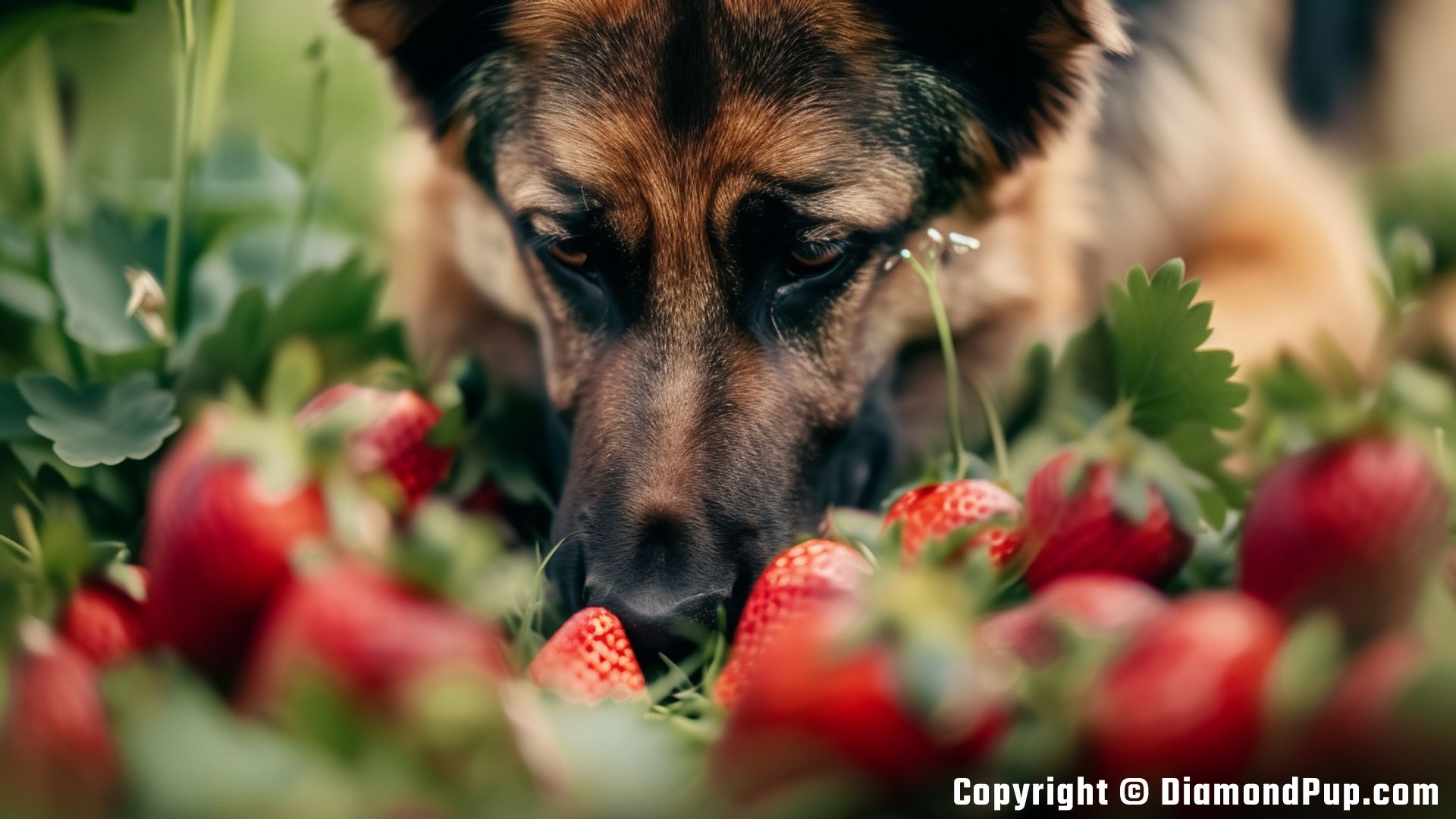
Are Strawberries Good for German Shepherds?
Strawberries can be a healthy treat for your German Shepherd when given in moderation. These juicy fruits are packed with essential nutrients such as vitamin C, fiber, and antioxidants that can contribute to your dog's overall well-being. Vitamin C is important for collagen production, which helps maintain healthy skin and joints in German Shepherds, known for their active lifestyle. The fiber content in strawberries can aid in digestion and regulate bowel movements, promoting gastrointestinal health. Antioxidants in strawberries help to fight off free radicals and reduce inflammation, supporting your dog's immune system.
When feeding strawberries to your German Shepherd, make sure to wash them thoroughly to remove any pesticides or harmful residues. It's important to introduce new foods gradually to monitor for any adverse reactions, such as digestive upset or allergies. Additionally, remember that strawberries should only be given as an occasional treat alongside a balanced diet specifically formulated for German Shepherds to meet their unique nutritional needs.
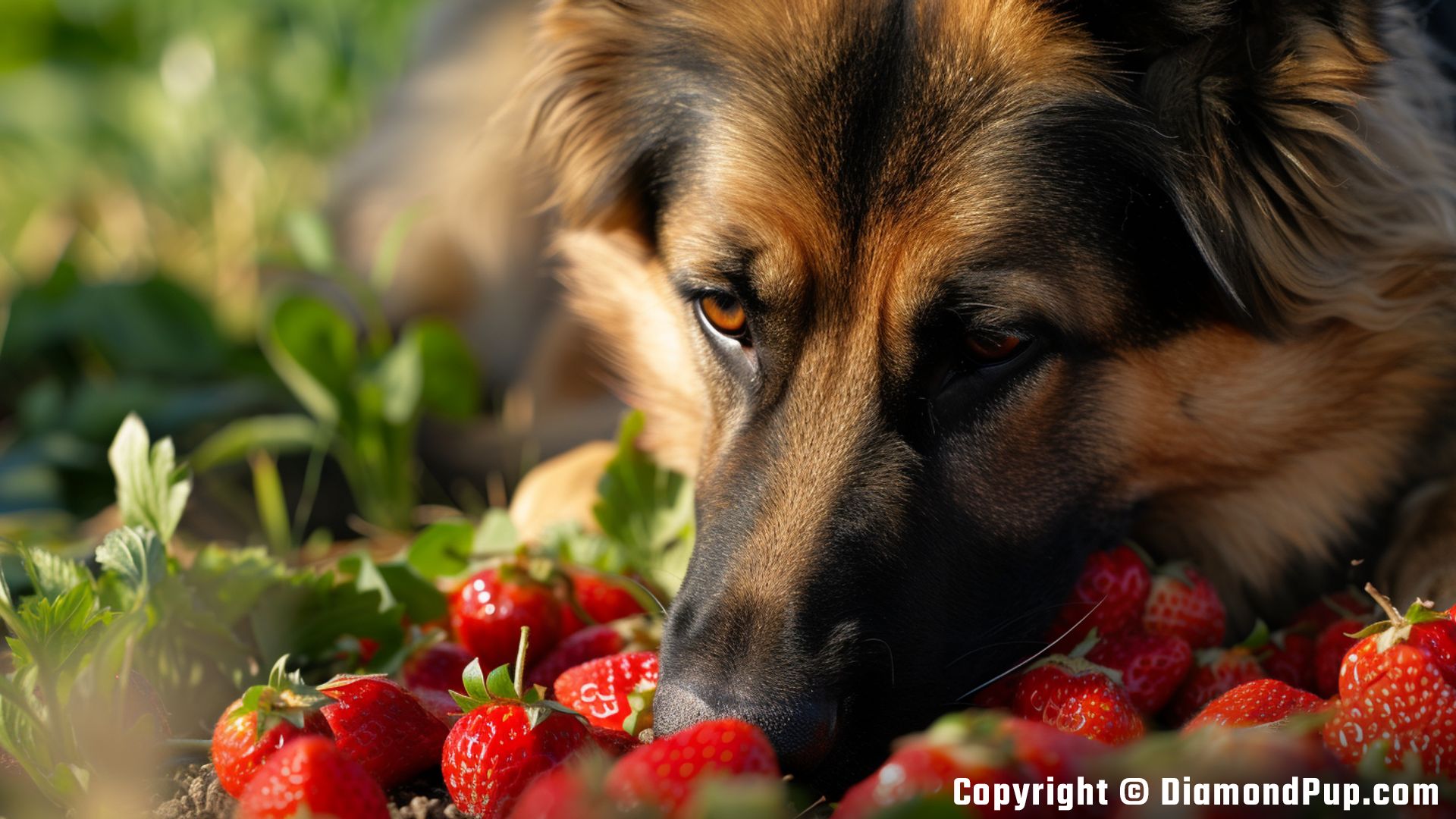
Understanding the Benefits of Strawberries for German Shepherds
Strawberries can actually offer a range of health benefits for your German Shepherd. These berries are packed with essential vitamins, minerals, and antioxidants that can support your dog's overall wellbeing. Vitamins C, K, and B9 found in strawberries can help boost your German Shepherd's immune system, promote healthy blood clotting, and aid in cell growth and metabolism. Additionally, the high fiber content in strawberries can support your dog's digestive health and help regulate their bowel movements. People also ask can I feed blueberries to my German Shepherd in the context of expanding their pet’s fruit intake. The antioxidants in strawberries can also help reduce inflammation and protect your German Shepherd's cells from damage caused by free radicals.
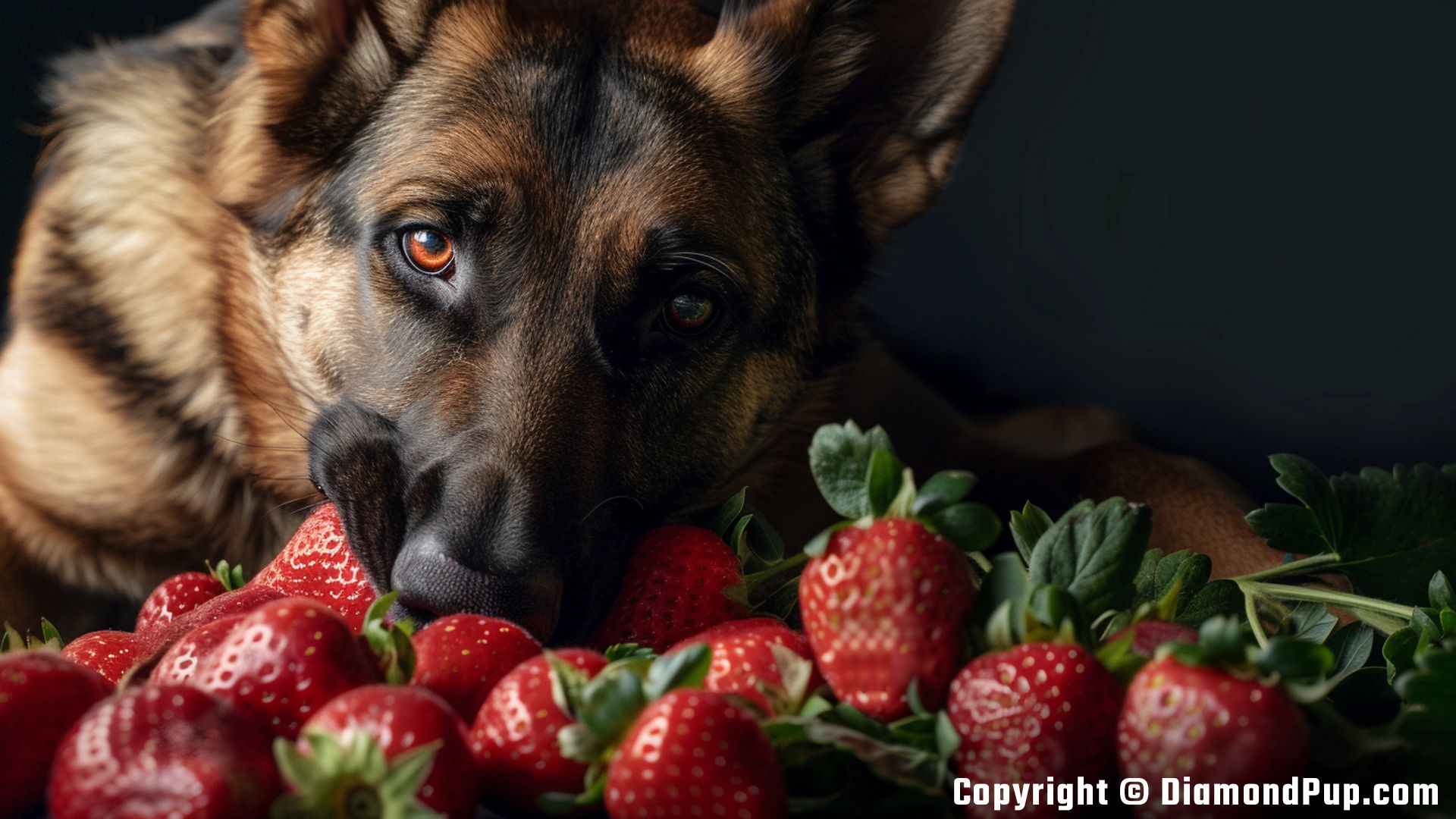
Nutritional benefits of Strawberries for German Shepherds
Strawberries can be a healthy and delicious treat for your German Shepherd. These juicy fruits are packed with essential nutrients such as vitamin C, which can help boost your dog's immune system and promote a healthy skin and coat. Additionally, strawberries are a good source of fiber, which can aid in digestion and help your dog feel full longer. The natural sweetness of strawberries can also satisfy your dog's sweet tooth without resorting to high-calorie treats.
When feeding strawberries to your German Shepherd, make sure to wash them thoroughly to remove any pesticides or harmful bacteria. It's best to feed them in moderation to prevent any digestive issues, as too many strawberries can cause stomach upset. Overall, incorporating strawberries into your German Shepherd's diet can provide a tasty and nutritious addition to their meals.
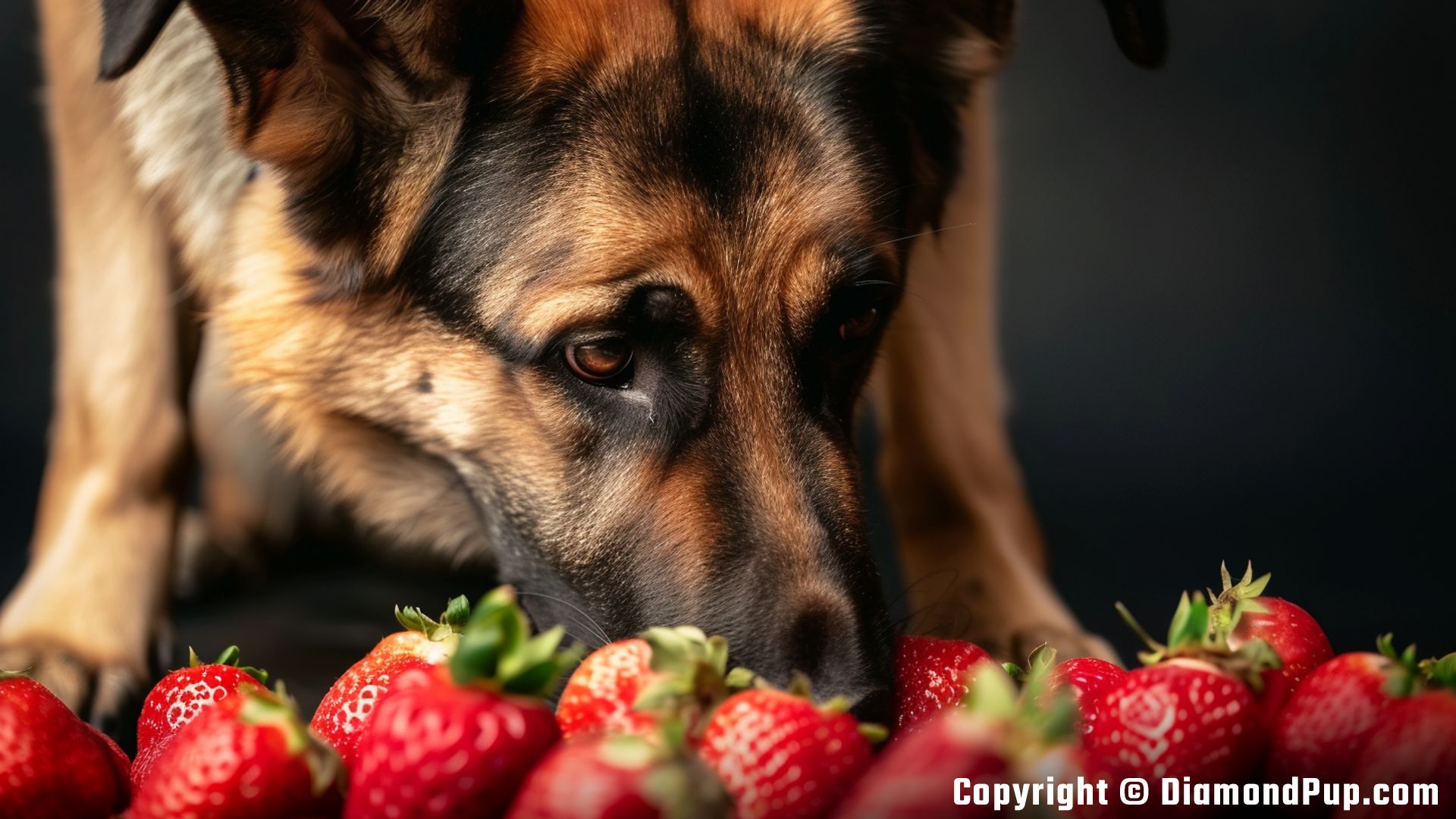
Safely Introducing Strawberries to Your Dog's Diet
When introducing strawberries to your German Shepherd's diet, it's important to start slowly and in moderation. Begin by offering small pieces of ripe, fresh strawberries to see how your dog reacts. Monitor for any signs of digestive upset such as diarrhea or vomiting. If your German Shepherd tolerates the fruit well, you can gradually increase the amount over time. Remember to wash the strawberries thoroughly to remove any pesticides or contaminants before serving them to your furry friend.
It's also crucial to feed strawberries as a treat or supplement to your German Shepherd's balanced diet, rather than as a replacement for their regular food. While strawberries offer some health benefits, they should not make up a large portion of your dog's daily caloric intake. Always consult with your veterinarian before making any significant changes to your pet's diet, including introducing new fruits like strawberries.
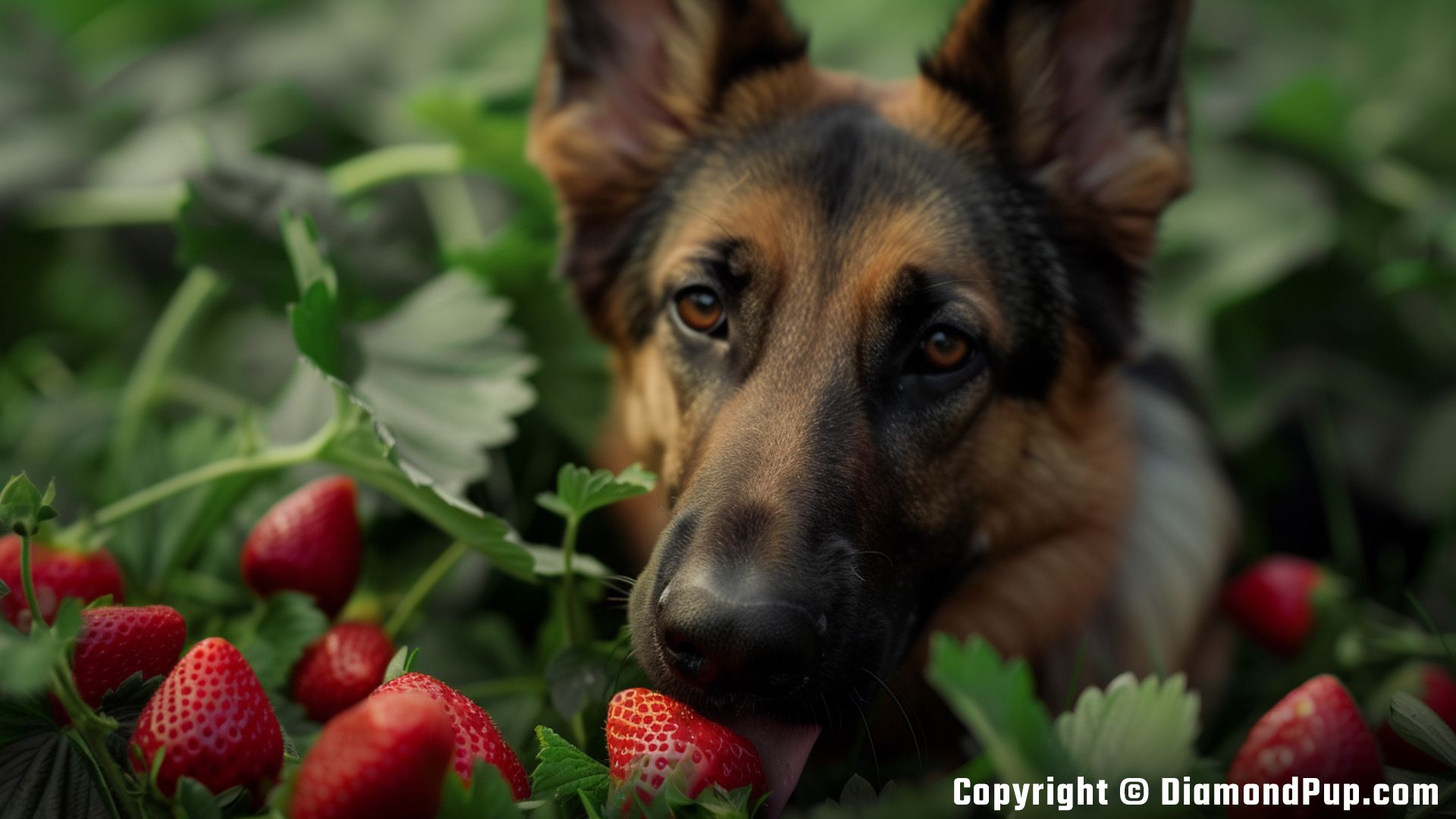
How much strawberry can a dog eat safely?
While strawberries can be a safe and healthy treat for German shepherds, it's important to feed them in moderation. As a general rule of thumb, it's recommended to offer strawberries as an occasional snack or a small portion of a balanced diet. For a typical adult German shepherd, a couple of strawberries a few times a week should be sufficient. Remember, too much of a good thing can lead to digestive upset or weight gain, so it's best to keep the portions small and controlled.
When introducing strawberries to your German shepherd's diet for the first time, start with a small amount and monitor for any signs of allergies or gastrointestinal issues. If your dog tolerates strawberries well, you can gradually increase the amount, always keeping in mind the overall calorie intake from treats and table scraps to maintain a healthy weight and prevent nutritional imbalances.
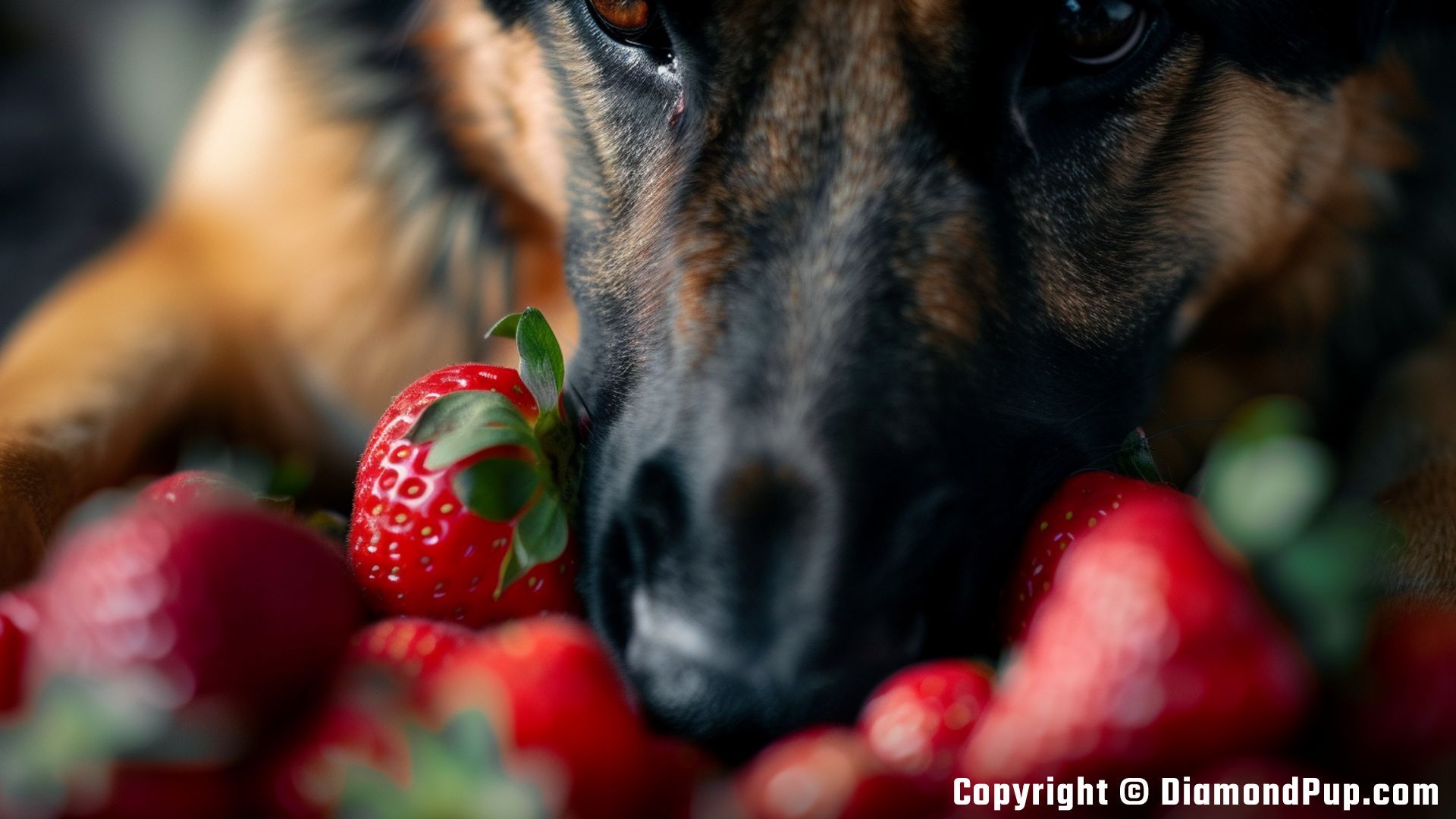
Tips to Remember When Feeding Your Dog Strawberries
When feeding your German Shepherd strawberries, there are a few important tips to keep in mind. Firstly, always wash the strawberries thoroughly to remove any pesticides or residues that could be harmful to your dog. Secondly, remember to remove the green leafy tops and cut the strawberries into small, bite-sized pieces to prevent choking hazards. Lastly, it's crucial to feed strawberries to your German Shepherd in moderation as too much can cause gastrointestinal upset due to the natural sugar content. By following these simple tips, you can safely incorporate strawberries into your German Shepherd's diet as a delicious and nutritious treat.
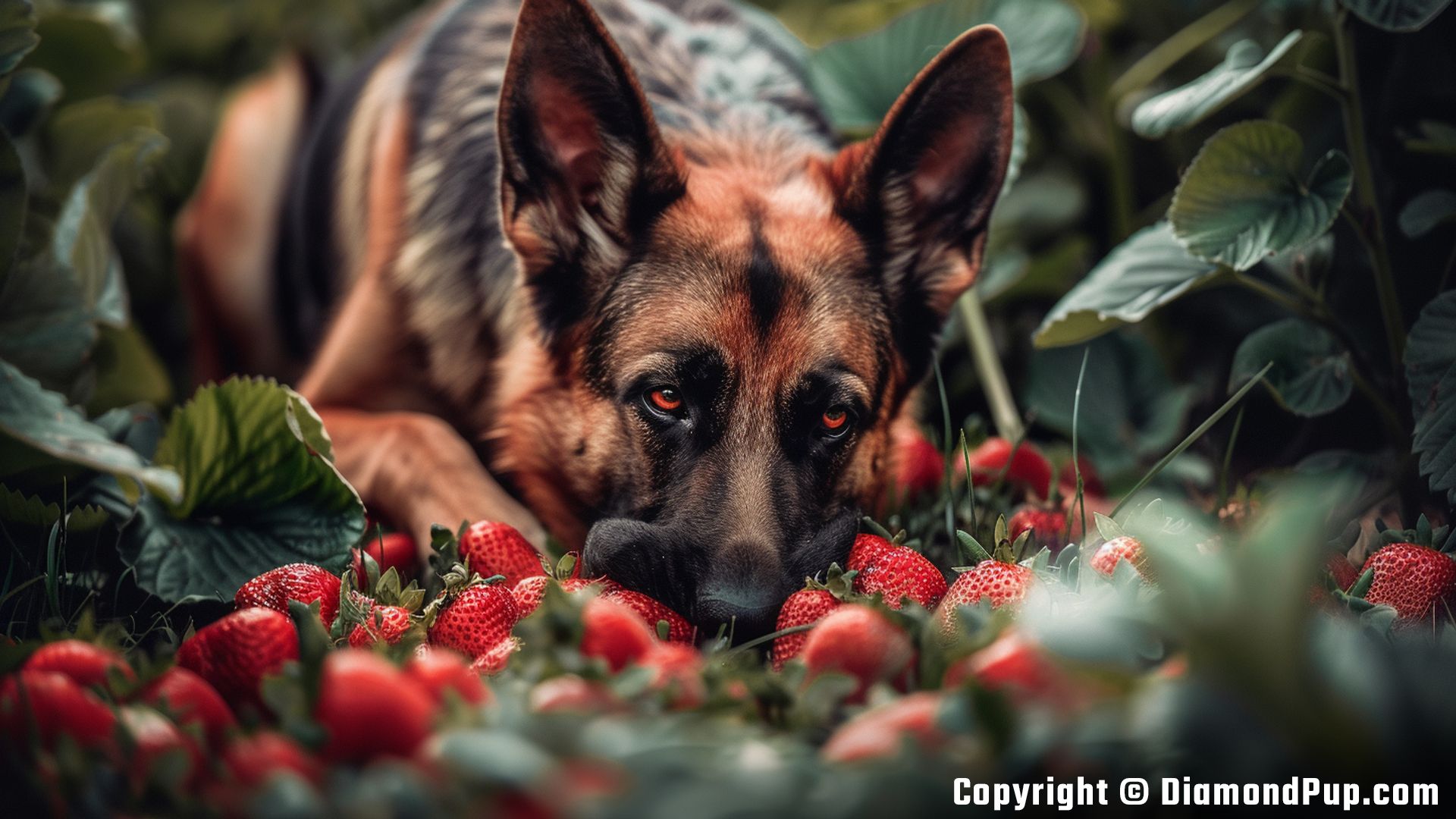
Feeding Your Dog Strawberries
When it comes to feeding your German Shepherd strawberries, it's important to do so in moderation. These sweet berries are safe for your furry friend to eat, but they should only be given as an occasional treat due to their natural sugar content. Too many strawberries can upset your dog's stomach or potentially lead to weight gain, so it's best to offer them sparingly. Additionally, make sure to wash the strawberries thoroughly to remove any pesticides or harmful residues that could be present on the surface.
As a German Shepherd owner, you'll want to monitor your dog's reaction to strawberries the first time they try them. Look out for any signs of digestive issues such as diarrhea or vomiting. If your pup enjoys strawberries and shows no adverse reactions, you can continue to offer them as a tasty snack from time to time, adding a nutritious boost to their diet.
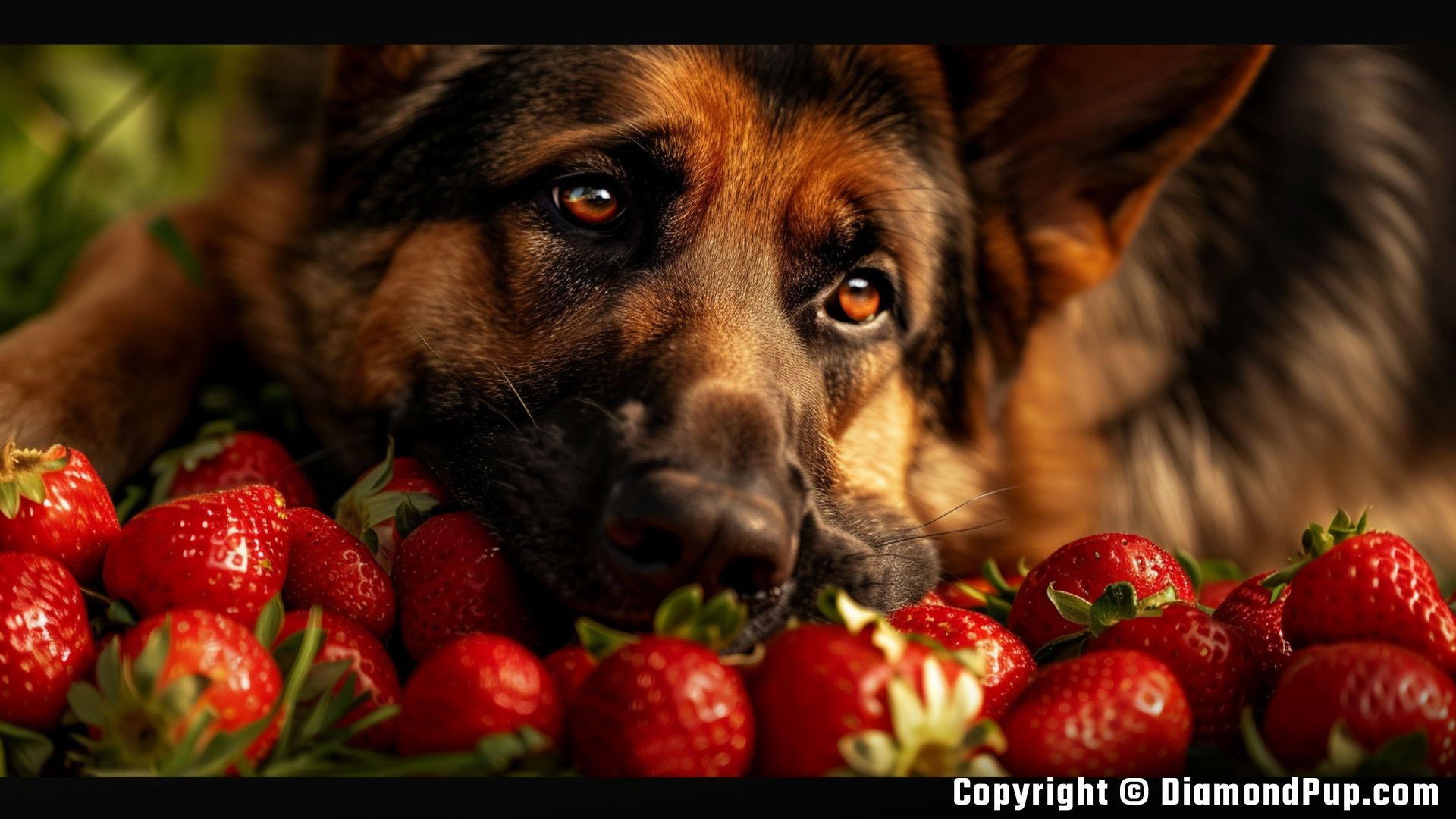
How to properly feed your dog Strawberries
When it comes to feeding your German Shepherd strawberries, there are a few important things to keep in mind to ensure their safety and health. First and foremost, make sure to wash the strawberries thoroughly to remove any dirt, pesticides, or chemicals that may be present on the skin. It's also crucial to remove the green leaves and stem from the strawberry before offering it to your dog, as these parts can be a choking hazard or cause digestive issues.
Additionally, it's best to offer strawberries to your German Shepherd in moderation. While strawberries are a nutritious and delicious treat, too much can lead to an upset stomach or diarrhea due to their natural sugar content. As a general guideline, you can start by offering a small piece of strawberry to your dog as a snack and monitor for any adverse reactions. If your German Shepherd tolerates strawberries well, you can continue to include them as an occasional treat in their balanced diet.
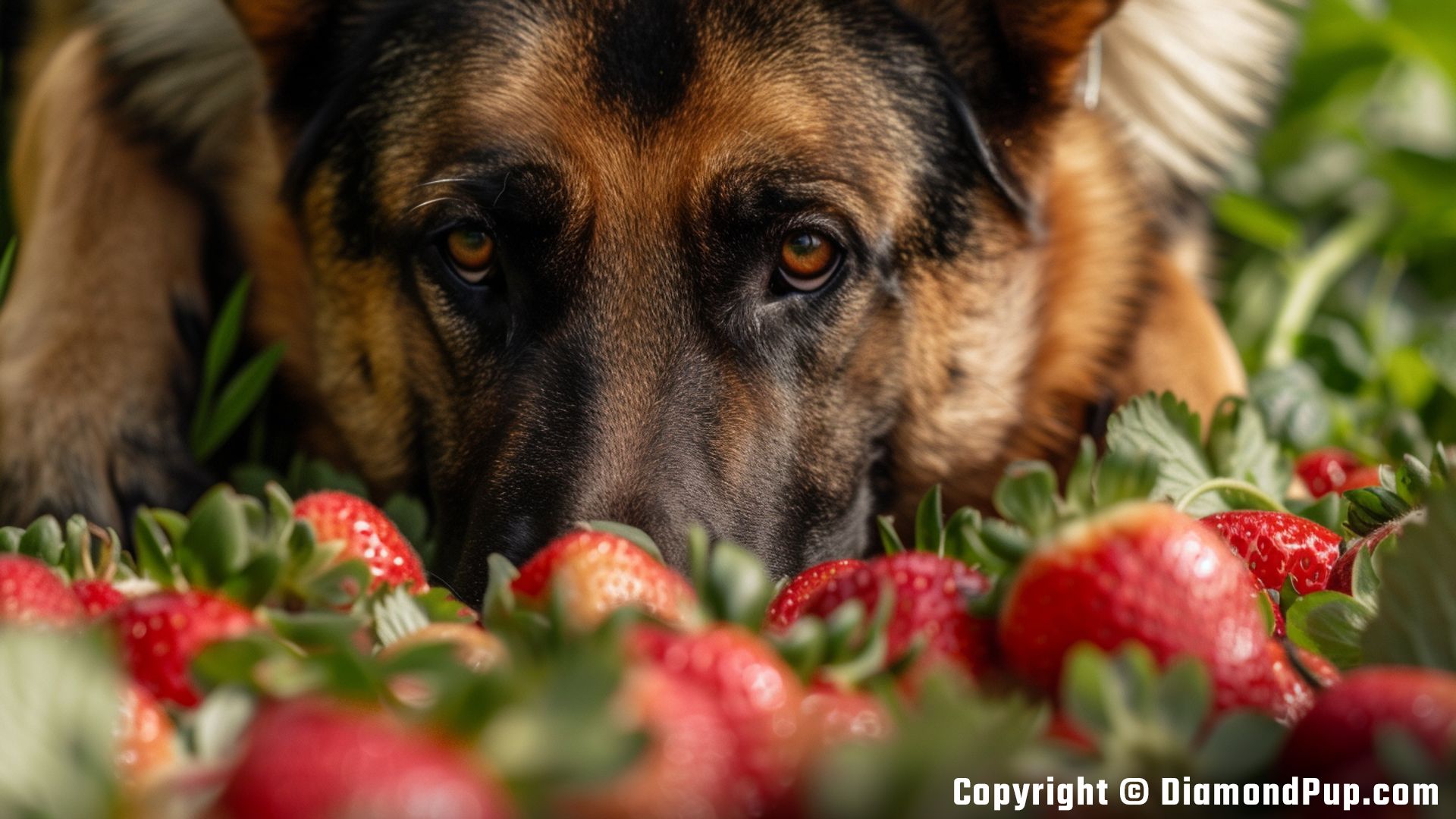
Do German Shepherds Like Strawberries?
German Shepherds, known for their strong and intelligent nature, may surprisingly enjoy the taste of strawberries. These dogs are typically food-motivated and may find the sweetness and juiciness of strawberries quite appealing. It's always important to introduce new foods, like strawberries, in moderation to ensure they agree with your German Shepherd's digestive system.
While some German Shepherds may eagerly gobble up strawberries as a tasty treat, others may not show as much interest. Each dog is unique, so it's essential to observe your furry friend's reaction when offering strawberries for the first time. If your German Shepherd enjoys this fruit, you can continue to include it as an occasional snack in their diet, ensuring it complements their overall nutritional needs.
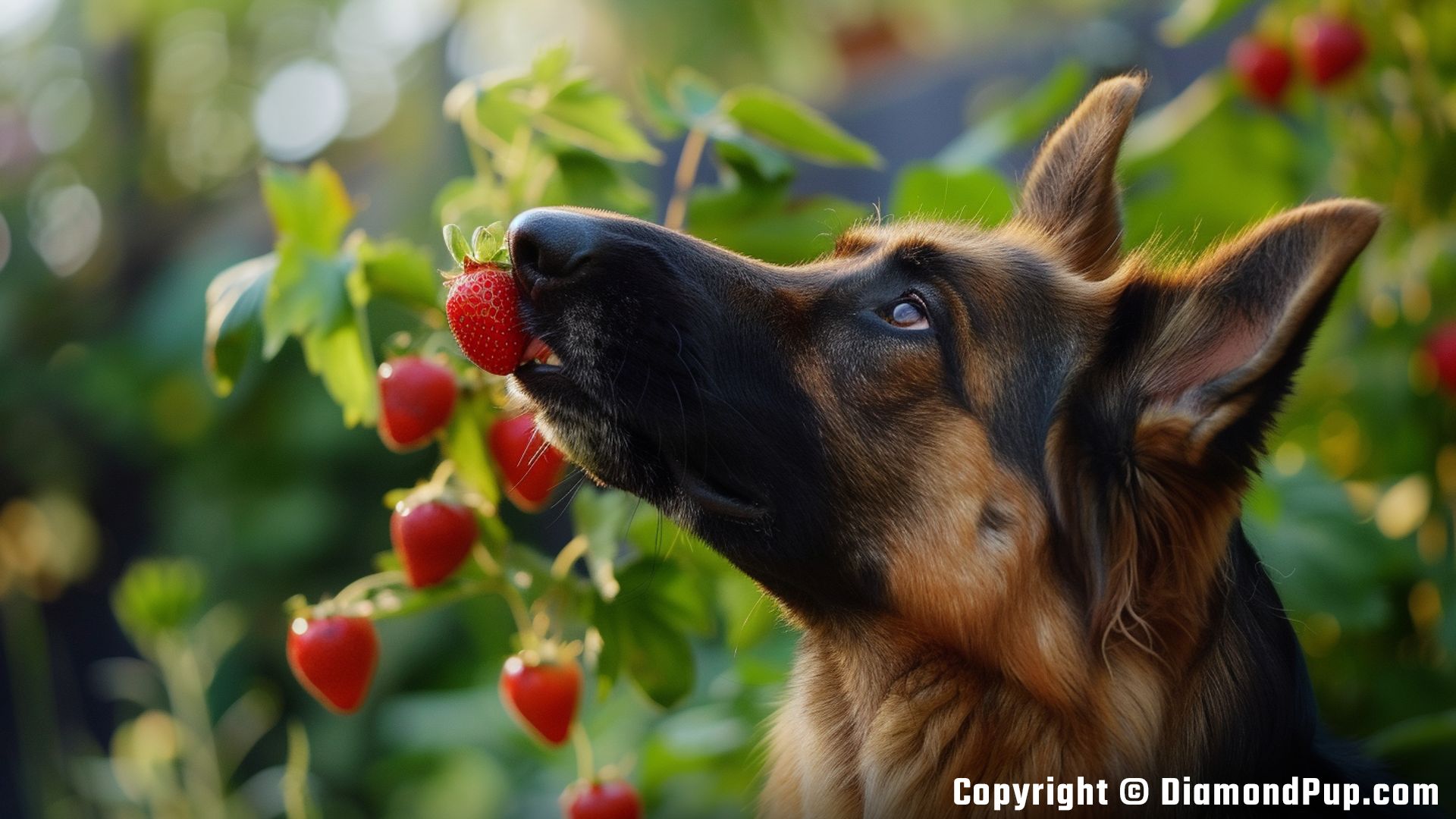
Special Consideration for German Shepherds
When it comes to German shepherds, it's important to consider their potential sensitivity to certain foods. While strawberries are generally safe for dogs, including German shepherds, it's crucial to introduce them gradually into their diet. This breed can sometimes have a sensitive stomach, so starting with small amounts of strawberries and monitoring their reaction is recommended.
Additionally, as German shepherds are prone to certain health issues like hip dysplasia and obesity, it's important to choose fresh, organic strawberries as treats and avoid sugary or artificially flavored options. The high fiber content in strawberries can be beneficial for their digestive health, but moderation is key to prevent any potential stomach upset. Overall, with the right approach, German shepherds can enjoy the occasional strawberry as a tasty and nutritious snack.

Can Puppies Have Strawberries?
When it comes to feeding strawberries to German Shepherd puppies, it's important to proceed with caution. While strawberries can be a healthy treat for adult German Shepherds, puppies have more sensitive digestive systems and may not be able to tolerate certain foods as well. On a related note, people also ask about feeding blueberries to german shepherds: yes or no? It's best to introduce strawberries gradually and in small quantities to monitor for any signs of stomach upset or allergies. Additionally, it's crucial to only offer ripe strawberries that are thoroughly washed to remove any pesticides or residues that could be harmful to your puppy. As with any new food, always consult with your veterinarian before adding strawberries or any new item, like blueberries, to your German Shepherd puppy's diet to ensure it is safe and appropriate for their age and health status.
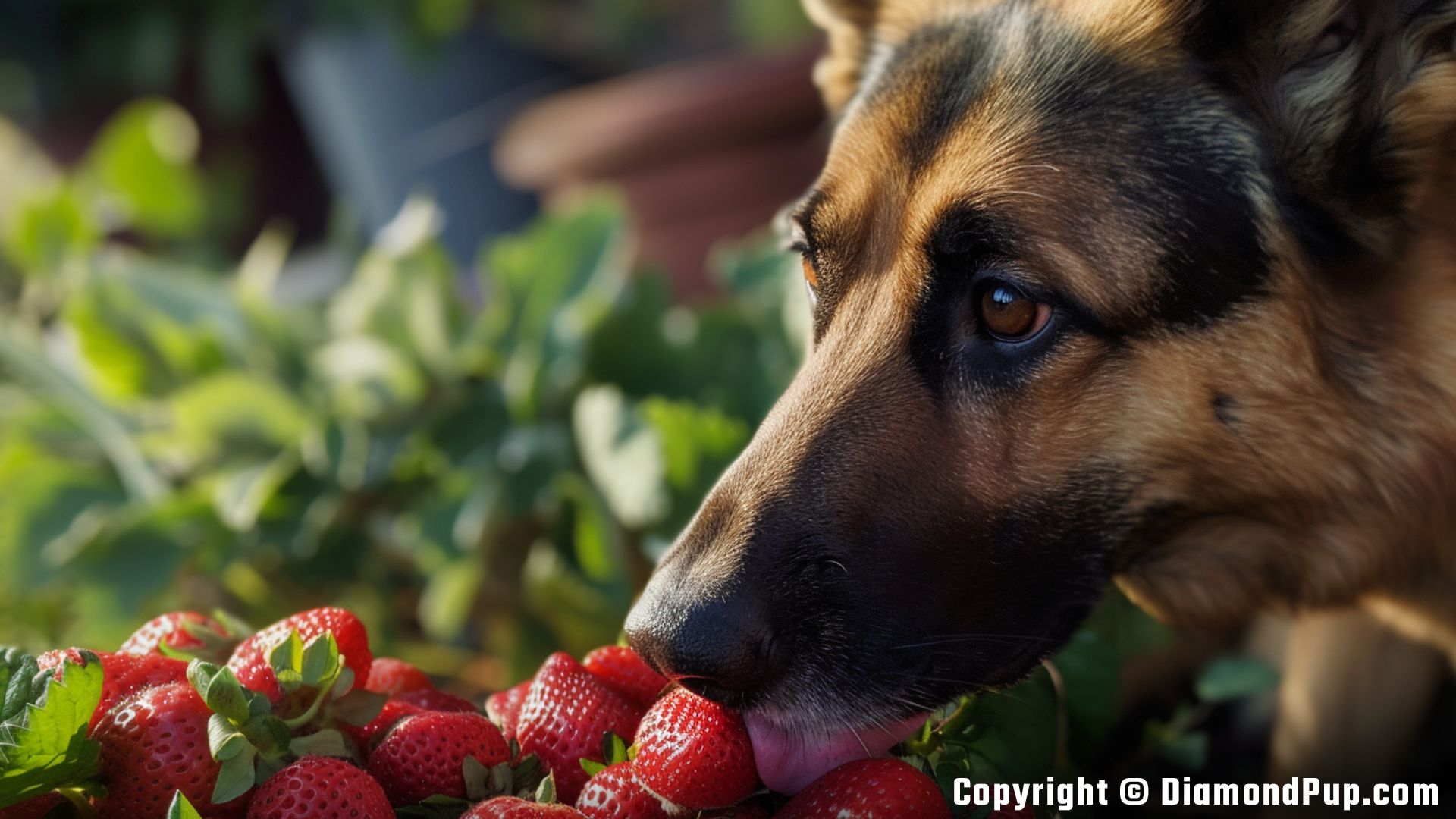
Are there any German Shepherds that shouldn't eat Strawberries?
While strawberries can be a healthy treat for many German shepherds, there are a few exceptions to keep in mind. Some dogs may have allergies to strawberries, evidenced by symptoms such as itching, digestive upset, or skin rashes. If your German shepherd has shown sensitivity to other fruits in the past, it might be best to proceed with caution when introducing strawberries into their diet. Additionally, German shepherds with certain health conditions, such as diabetes or kidney issues, may need to avoid strawberries due to their sugar content. People also ask are german shepherds allowed to have banana as a safer alternative or addition to their diet, highlighting the importance of understanding which fruits are beneficial for your pet.
Recipes for Feeding Your Dog Strawberries
When it comes to feeding your German Shepherd strawberries, it's important to keep it simple and safe. One easy recipe is to simply wash a few strawberries, remove the stems, and then chop them into bite-sized pieces. You can then mix these strawberry pieces with your German Shepherd's regular dog food for a tasty and nutritious treat. Remember to start with small amounts to ensure your dog tolerates strawberries well.
If you're feeling a bit more creative, you can blend a few strawberries into a puree and drizzle it over your dog's food for an extra burst of flavor. Just make sure to avoid adding any sugar or artificial sweeteners to the puree, as these can be harmful to your dog. Always supervise your German Shepherd while introducing new foods, including strawberries, to monitor for any signs of allergies or digestive upset.
Alternatives to Strawberries for German Shepherds
While strawberries can be a tasty and nutritious treat for German Shepherds, there are also other fruits that can provide similar benefits. Blueberries, for example, are packed with antioxidants and vitamins that can support your German Shepherd's overall health. Another great option is apples, which are high in fiber and can help support your dog's digestion. Remember to always remove any seeds or pits from fruits before feeding them to your furry friend.
If you're looking for non-fruit alternatives, vegetables like carrots and green beans can also be excellent options for German Shepherds. Carrots are crunchy and high in beta-carotene, which supports eye health, while green beans are a good source of vitamins and minerals. It's essential to introduce new foods gradually into your dog's diet to monitor for any potential allergies or sensitivities.
Common Questions About German Shepherds and Strawberries
One common question that arises when it comes to feeding German shepherds strawberries is whether they are safe for them to eat. The answer is a resounding yes! Strawberries are not only safe for German shepherds to consume, but they also offer a range of health benefits due to their high vitamin C content, antioxidants, and fiber. However, it is important to feed strawberries to your German shepherd in moderation, as too much can potentially lead to digestive upset.
As with any new food introduction, it's always a good idea to start slowly and monitor your dog for any signs of allergic reactions or gastrointestinal issues. Remember to wash the strawberries thoroughly, remove the stems, and cut them into bite-sized pieces to prevent choking hazards. By incorporating strawberries into your German shepherd's diet as a tasty treat, you can provide them with a nutritious snack that they are sure to enjoy.
Subscribe Now
Stay updated with the latest news and articles! We'll keep you updated on the latest tips for your pet German Shepherd
